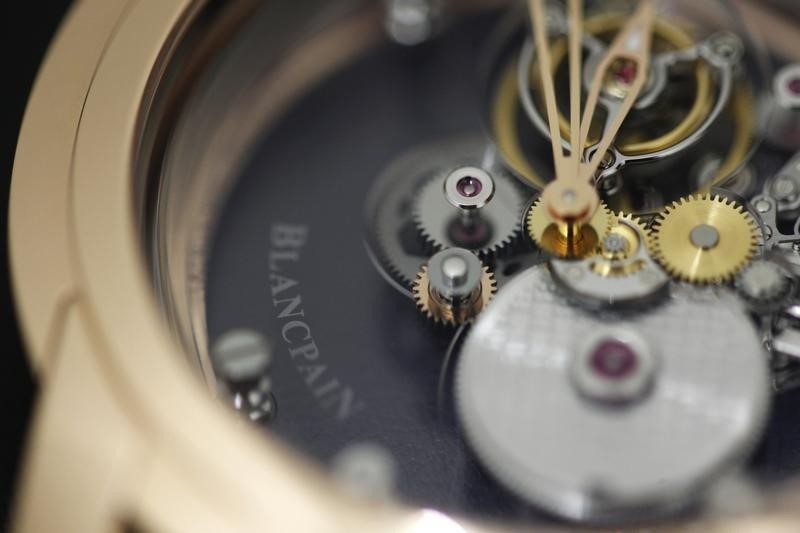By Caroline Copley and Joshua Franklin
ZURICH (Reuters) - "Swiss Made" has traditionally stood for quality, precision and reliability. But after a shock move to scrap the cap on the franc, it could convey a less attractive message: Made more expensive.
The decision by the Swiss National Bank, after three years of holding down the franc's value, was met with indignation by many small-to-mid size companies which now face lower revenue from exports.
Unlike bigger multinationals based in the country, smaller companies tend to produce a higher proportion of their goods in Switzerland, meaning they lack the spread of costs in other currencies that could mitigate the franc's surge.
Many face the prospect of cost and price cuts to stay competitive.
"I trust you have a strong plan that will help all of us in the long run," Edouard Meylan, chief executive of watchmaker H. Moser & Cie wrote in a scathing open letter to the SNB President Thomas Jordan, saying he had already received calls from retailers cancelling orders.
Small and medium-sized companies were responsible for around a fifth of all Swiss exports in 2012, according to a survey by Credit Suisse. They employ 2.3 million of the country's 8 million people, a separate study by consultancy OBT estimated.
This means any fallout from the franc's new strength could have serious consequences for the economy.
Watchmakers will be among the hardest hit, since under new legislation passed by parliament in 2013 at least 60 percent of the value of industrial products, including watches, has to be manufactured in Switzerland to carry the coveted "Swiss Made" label.
Nicholas Ebisch, currency analyst at Caxton FX, said Swiss companies' products were now between 10 and 40 percent more expensive than earlier in the week due to the SNB's move.
'SQUEEZED LEMON'
Medical technology companies - another niche area where Switzerland excels - are also expected to feel the pain.
Dental implant maker Straumann
Sonova (VX:SOON), the world's largest maker of hearing aids, was also singled out by analysts due to its Swiss-based manufacturing. Credit Suisse said the currency moves could knock as much as 20 percent off both companies' annual operating profit.
While Straumann pledged to take a harder look at costs, for many small companies the room for manoeuvre is non-existent.
"At some companies the lemon is already fully squeezed," said Roland Goethe, president of Swissmechanic, the employers' association for companies in the machinery, electronic and metalworking sectors.
"It's been said that firms had three years to prepare for the cap's abolishment. But how can you prepare with a squeezed lemon?" he added, saying the first indications from the association's members showed customers in Europe, the sector's main market, were not prepared to pay higher prices.
While falling import prices may provide a boost, Goethe judged the overall balance to be negative.
Neither is the service sector immune.
Wealth managers like EFG International
'SHOCK THERAPY'
Corporate Switzerland was left reeling by the decision to pull the plug on the cap, which came without warning and has blown a hole in their ability to forward plan with certainty.
Industry group Swiss Textiles said the franc's strength posed an "existential threat" that endangered jobs.
Peter Spuhler, chief executive of Stadler Rail, which exports half of its trains abroad, described the sudden announcement as "shock therapy" for industry.
"The only thing you can do in the short term is relocate part of the production process abroad. Otherwise you have no chance and you don't get the orders," he told Swiss television.
The franc's surge is a further cloud on the horizon for companies, already burdened by a vote to restrict immigration last year that threatens to choke off the supply of highly-skilled labour from the European Union.
For some, it makes the prospect of quitting Switzerland altogether more appealing.

"I've been chasing a thought around in my head: why not just move 2 km to Germany and do our business in the EU from now on?" said H. Moser & Cie's Meylan.